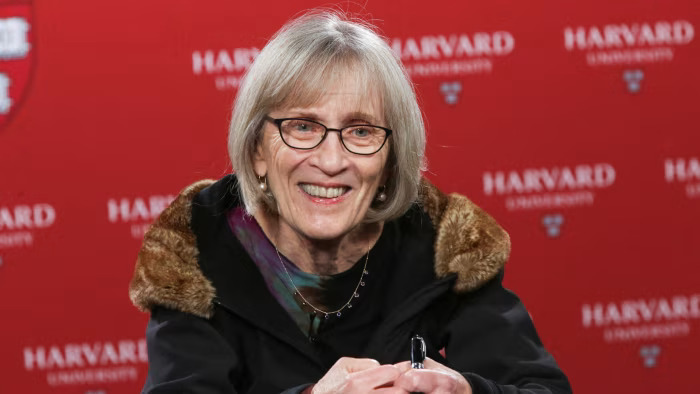Harvard professor has advanced understanding of women’s labour market outcomes
Claudia Goldin, a professor at Harvard University, has won the Nobel Prize for economics for advancing the understanding of women’s labour market outcomes.
The committee awarding the prize, officially known as the Sveriges Riksbank Prize in Economic Sciences in memory of Alfred Nobel, said she had “provided the first comprehensive account of women’s earnings and labour market outcomes throughout the centuries”, revealing the main causes of change and the main sources of the remaining gender gap.
Goldin, born in New York in 1946, was herself the first woman to receive tenure in a number of university departments, including Harvard. She becomes only the third woman to win the prize, after Elinor Ostrom in 2009 and Esther Duflo in 2019, and the first to win it solo.
Randi Hjalmarsson, a member of the prize committee, said Goldin had combined the tools of a labour market economist with those used by economic historians to chart how female employment in the US evolved over more than 200 years, as a largely agricultural economy developed into an industrial and then an office-based society.
“She had to be a detective,” Hjalmarsson said, describing how Goldin had uncovered and interpreted new sources of data for periods in which women’s occupations and earnings often went unrecorded, showing that their employment rate was much higher than shown in censuses.
One of her most counterintuitive findings was that women’s participation in paid employment did not increase steadily over time, or in line with economic growth, but formed a U-shaped curve.
Almost 60 per cent of married and older women in Philadelphia were in work at the end of the 18th century — including those in agriculture, cottage industries and in the home — but this proportion dropped over the next century as it became harder to combine work in factories with family duties.
Even in the 20th century, progress in closing the gender gap for employment and earnings was “slow and sporadic”, Goldin found — while demonstrating that these long-run trends were primarily owing to changes in the employment of married women.
Overt barriers, such as legislation that prevented women from remaining in jobs such as teachers or office workers when they married, played a part in this.
So did structural changes in the labour market. The gender earnings gap in the US narrowed in the early 20th century with the rise of clerical work and secondary education. But Goldin found that at the same time, the share of the gap owing to discrimination against women more than doubled, as employers abandoned piecework contracts in favour of monthly salary structures that tended to reward long service, uninterrupted by children.
But Goldin’s research also showed the persistent influence of educational choices women had made early in their lives — when they did not expect to spend long in the labour market — that limited their choices much later when they tried to return to work as their children reached independence.
Another crucial study she conducted, co-authored with her husband Lawrence Katz, showed how the introduction of the contraceptive pill at different times in different US states led women to plan and invest in their careers.
“Being a detective means you have a question . . . so important that you will go to any end to find it,” Goldin said after receiving news of the award in the early hours in her home in Cambridge, Massachusetts.
Kristalina Georgieva, the IMF managing director, and Christine Lagarde, the European Central Bank president, were among those offering congratulations on the award, which comes shortly after the publication of Goldin’s latest paper — titled “Why Women Won”.
Jason Furman, a colleague at Harvard and former economic adviser to Barack Obama, described her as “a path-breaking scholar who has reshaped the way I think about inequality, women in the labour force and much more”, as well as “a generous mentor to generations of students”.
Although Goldin does not use her research as the basis for policy conclusions, the Nobel committee said Goldin’s work had “vast societal implications” and in particular could inform policy in countries still developing along paths the US economy had followed earlier.
At global level, about 50 per cent of women work, compared with 80 per cent of men and the gaps are even larger in parts of South Asia, the Middle East and north Africa. Although the share of women who work has tripled in many high-income countries over the past century, they still earn less than men on average and occupy fewer of the top jobs.
Goldin’s most recent book, Career and Family, puts this down to a phenomenon of “greedy jobs”, where people willing to put in unpredictable long hours can command higher hourly pay, while those who choose to be “on call” for parental duties pay a career penalty.

